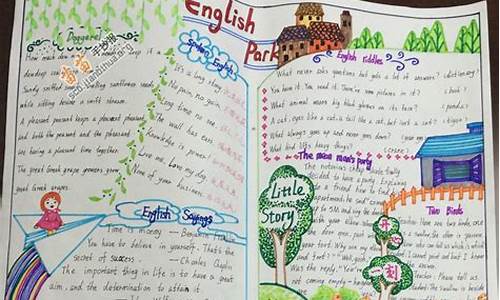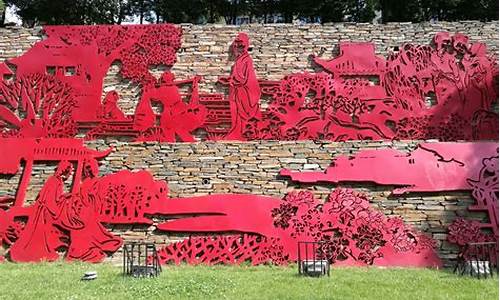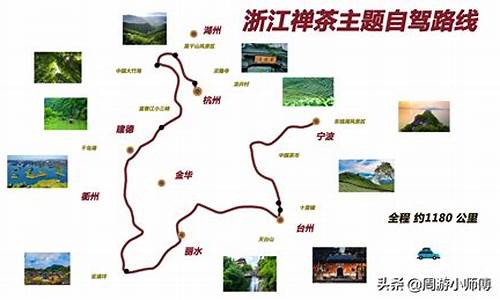关于旅游的英语手抄报简单又漂亮_旅游攻略英语手抄报过去式
1.英语第一单元手抄报怎么画
2.英语手抄报内容
3.英语手抄报简单又漂亮五年级第四单元
4.六年级英语手抄报简单又好画
5.搜索英语手抄报

Unit 1 How can I get there?
一:重点单词和短语
Science科学, museum博物馆, post office, bookstore, cinema, hospital ,tasty, buy, London Eye伦敦银, stomach胃 ,crossing十字路口, turn left, turn right,
go straight=walk straight直走.next to紧挨着/与。。。相邻, far from(离。。。远), near在。。。附近 ,behind(在。。。后面) , in front of(在。。。前面) , between…and…(在。。。和。。。之间)
按要求写单词:
hot(反义词)cold ,cool(反义词)warm,too(同音词)to/twocan not(缩写)can’t right(反义词)left/wrong buy(同音词)by/bye sea(同音
词)see first(基数词)one four(序数词)fourth did (原形)do /doesthree(序数词)third give(过去式)ge
重点句型分析
1. Where is the museum shop?
此问句是由特殊疑问词where 引导的一个特殊疑问句, where意为“在哪里, 到哪里”, 用来询问地点, 放在句子的开头。 询问“某人或某物在哪里”的基本句型是:“ Where +is/are+ 主语?”, where is 后接名词或代词的单数形式, where are 后接名词或代词的复数形式。表示地点的词:museum博物馆, post office邮局, bookstore书店, cinema**院, hospital医院 restaurant餐馆bank银行 bus stop公交车站lake湖 library图书馆zoo动物园 school学校 park公园 garden花园 hotel旅馆
2. It’s near the door.
此句中near是表示位置的介词, 意为“旁边,附近” , 其同义句是:It’s next to the door.它在门的旁边。表示位置的短语:next to the bookstore挨着书店 near the hospital在医院附近 near the post office在邮局附近over there 在那边on Dongfang Street在东方大街上 in front of the school在学校前面。
英语第一单元手抄报怎么画
1、动词be(is,am,are)的用法
我(I)用am,你(you)用are,is跟着他(he),她(she),它(it)。单数名词用is,复数名词全用are。变否定,更容易,be后not加上去。变疑问,往前提,句末问号莫丢弃。还有一条须注意,句首大写莫忘记。
2.this,that和it用法
(1)this和that是指示代词,it是人称代词。
(2)距离说话人近的人或物用this,距离说话人远的人或物用that。如:Thisisaflower.这是一朵花。(近处)
Thatisatree.那是一棵树。(远处)
(3)放在一起的两样东西,先说this,后说that。如:
Thisisapen.Thatisapencil.这是一支钢笔。那是一支铅笔。
(4)向别人介绍某人时说Thisis…,不说Thatis…。如:
ThisisHelen.Helen,thisisTom.这是海伦,海伦,这是汤姆。
(5)Thisis不能缩写,而Thatis可以缩写。如:
Thisisabike.That’sacar.这是一辆自行车。那是一辆轿车。
六年级英语知识点如下:
1、肯定句要使用动词的过去式,否定句和疑问句要使用助动词do和 does 的过去式 did。
2、一般过去时态由动词的过去式表示。大多数动词的过去式是在动词原形后加上ed构成。这类动词称为规则动词。
3、当句中含有情态动词或助动词could,would,should等时,可直接在其后面加not构成否定句。
4、距离说话人近的人或物用this,距离说话人远的人或物用that。
5、在回答主语是these或those的疑问句时,通常用they代替these或those以避免重复。
英语手抄报内容
1. What’ s the matter? 怎么啦?出什么事情了?
解析matter/ ' m?t?(r)) /n.问题;事情
What’ s the matter with you?= What’s the trouble with you? = What’ s wrong with you? 你怎么了?
注: matter 和trouble 为名词, 其前可加the 或形容词性物主代词,wrong 是adj. 不能加the
用法用于询问某人有什么病或某人遇到什么麻烦、问题其后跟询问对象时, 与介词with连用。即:
What’s the matter with sb.? = What’s your trouble? = What’s up? = What hens to sb.?
— What’s the matter with you ? — I he a bad cold.
2. I had a cold.我感冒了。 he a cold=catch a cold=he the flu感冒
he a fever 发烧 he a cough咳嗽 he a stomachache胃疼,肚子疼 he a toothache牙疼 he a headache头疼
3. 身体部位+ache(疼痛)构成新的复合词
stomach+ache=stomachache head+ache=headache tooth+ache=toothache back+ache=backache后背痛
4. much too+ 形容词,意为 太...... ,too much+名词,意为 很多,大量 。
5. enough形容、副词足够的/地,enough放在名前后,形副后。good enough足够好,enough money=much money
6. lie down躺下, lie 躺,躺着,过去式lay;lie说谎,过去式lied
7. maybe “或许”,常用于句首,表示可能性,后加句子。Maybe you are right.
may be,是情态动词+be的结构,意为“可能,也许”,后加名词、代词或形容词。He may be angry.
sound like+名词代词和从句:It sounds like you don’t know the truth.
It sounds like a good idea. sound+形容词,“听起来,好像”,The music sounds nice.
9. need 需要,实义动词need+名词,需要某物;
need to do sth.需要做某事,主语通常是人,表示人主动的动作:You need to listen carefully during class.
need doing sth.主语通常是物,表示被动的动作:Your dirty clothes need washing.
10. get off (the bus) 下(公交车) get on 上车
11. agree 同意,赞同;
agree with sth. 同意某事 如:I agree with that idea.
agree to sb. 同意某人的意见 如:I agree to LiLei.
12. trouble问题,麻烦 ;be in trouble遇到麻烦,make trouble 制造麻烦 ,he trouble (in) doing sth. =he difficulties (in) doing sth做......有麻烦。
英语手抄报简单又漂亮五年级第四单元
做英语手抄报可以提高学生的英语学习兴趣。下面是我为大家带来的英语手抄报及资料,希望大家喜欢。
英语手抄报资料1:让别人有价值Some people say that when you Ma entrepreneurial environment and opportunities than we good, you good luck, so you are successful, but we hen't got a chance. I can not say that this world is always the opportunity. Initially Microsoft do up, people say no one can surpass Microsoft, and later eared in Yahoo; people say no one can surpass Yahoo eared, and then the eBay; people feel eBay has been very great, and the emergence of Google, when people think that Google has like the sun as to be beyond the and now Facebook.
This society will never lack opportunities, much is an excuse, and the entrepreneur is no excuse.
3 years ago, Alibaba started, 1 cent did not earn, staff is very depressed, they even feel like a pany like Alibaba has. At that time the Internet has not been accepted by the majority of people, e-merce is very far away, the name of the Alibaba is very strange, I this person seems to be more people do not he a sense of trust.
But there is one thing that makes us optimistic and optimistic. We received a lot of *** all business customers thanks to the letter, said: Alibaba, because you, we got the order, to recruit new employees, to expand the scale of the pany. This makes me think, if I can help 10 *** all businesses today, in the future will be able to help 100, there are 10 in the future waiting for the market, the market must exist.
So many years of business experience, and municate with so many friends, I found that the pessimist is unlikely to be successful, pessimistic people are not going to start.
Optimi *** is not only their own fort, but also warm right hand of left hand, sharing their joy to others. The entrepreneur is not only to make yourself hy, but also make people hy, to let others he value. Let others he the value of people, the road will go far, go long, go at ease, walk fortably.
图一图二 图三
图四 图五 2:一般过去时
1.一般过去时表示过去某个时间发生的动作或存在的状态,常和表示过去的时间状语连用。一般过去时也表示过去经常或反复发生的动作感谢。
2.Be动词在一般过去时中的变化:
⑴am 和is在一般过去时中变为was。was not=wasn’t
⑵are在一般过去时中变为were。were not=weren’t
⑶带有was或were的句子,其否定、疑问的变化和is, am, are一样,即否定句在was或were后加not,一般疑问句把was或were调到句首。
3.句中没有be动词的一般过去时的句子
否定句:didn’t +动词原形,如:Jim didn’t go home yesterday. 一般疑问句:在句首加did,句子中的动词过去式变回原形。如:Did Jim go home yesterday? 特殊疑问句:
⑴疑问词+did+主语+动词原形?如: What did Jim do yesterday? ⑵疑问词当主语时:疑问词+动词过去式?如:Who went to home yesterday?
六年级英语手抄报简单又好画
英语课程标准本质上也是一种特殊的文化。下面是我为大家带来的 简单又漂亮五年级第四单元 英语手抄报及资料,希望大家喜欢。
资料1:否定句表示某一否定意思。句中一定有not。
有三种可能:be动词am、is、are、was、were+not、情态动词can、must、should+ not、助动词do、does、did + not
如何将一个肯定的陈述句改为否定句:
1、看句中有无be动词,如有,直接在be动词后+ not。
2、看句中有无情态动词,如有,直接在情态动词后+ not。
3、如上述二者都没有,就应用助动词+ not。分四个步骤:
1肯定陈述句中本来是没有助动词的,要加上去,位置在主语某人或某物后,动词前。
2确定助动词用do、does还是did,根据句中动词,动词是原形的助动词就用do,动词是第三人称单数的助动词就用does,动词用过去式的助动词就有did。
3在助动词后加not。
4原句中动词如发生变化就要恢复成原形。
强调一点,有some的要考虑是否要用any。
图一 图二 图三 图四 图五 2:一般疑问句表示疑问,一般回答只有两种可能Yes,……或No,……句中没有疑问词。
如何将一个肯定的陈述句改为否定句:
1、看句中有无be动词,如有,把be动词提到句首即可。
2、看句中有无情态动词,如有,把情态动词提到句首即可。
3、如上述二者都没有,就应把助动提到句首。分四个步骤:
1肯定陈述句中本来是没有助动词的,要加上去,位置在主语某人或某物后,动词前。
2确定助动词用do、does还是did,根据句中动词,动词是原形的助动词就用do,动词是第三人称单数的助动词就用does,动词用过去式的助动词就有did。
3把助动词后提到句首。
4原句中动词如发生变化就要恢复成原形。
强调一点,有some的要考虑是否要用any。
搜索英语手抄报
第一单元
一、 单词
young— younger更年轻的 old -older更年长的 tall- taller更高的
short-shorter更矮的 long-longer更长的 thin-thinner更瘦的hey-heier更重的 big-bigger更大的 small -smaller更小的
strong -stronger更强壮的
二、句子
1. That's the tallest dinosaur in this hall. 那是这个厅里最高的恐龙。
2. You're older than me.你比我大。
3. How tall are you? 你有多高? I'm 1.65 meters.我身高1.65米。
4. What size are your shoes?你穿多大号的鞋。
5. My shoes are size37.我穿37号的'鞋。
6. Your feet are bigger than mine.你的脚比我的大。
7. How hey are you?你有多重?
8. I'm 48 kilograms.我体重48公斤。
三、语法复习要点
形容词的比较级
1、形容词比较级在句子中的运用:两个事物或人的比较用比较级,比较级后面一般带有单词than。than后的人称代词用主格(口语中可用宾格)。
2.形容词加er的规则:
⑴一般在词尾加er ;
⑵以字母e 结尾,加r ;nice---nicer
⑶以一个元音字母和一个辅音字母结尾,应双写末尾的辅音字母,再加er ;big--- bigger thin---- thinner
⑷以“辅音字母+y”结尾,先把y变i,再加er 。hey----heier
3.不规则形容词比较级: good/well-better
例句:(1).It's taller than both of us together.它比我俩加起来还高。
(2).Your feet are bigger than mine.你的脚比我的大。
(3).I’m heier than you.我比你重。
第二单元
一、单词
clean打扫 -- cleaned(clean 的过去式)打扫
stay停留 -- stayed (stay的过去式)停留
wash洗—— washed 洗 watch看 ——watched看 he患病 ——had 患病
sleep 睡觉——slept睡觉 read读 ——read 读 see 看见——saw看见 last 上一个的 yesterday 昨天 before在…之前
二、短语
clean my room 打扫我的房间 wash my clothes 洗衣服 stay at home 呆在家里 watch TV 看电视 go boating 划船 read a book 读书 see a film 看** he a cold 感冒 sleep 睡觉(过去式slept)
search的意思是:搜寻;调查。
读音:英[s?t?],美[s?rt?]。
释义:
v.搜索,搜寻;调查,搜查;搜身;探求;思索;(在计算机上)搜索。
n.搜寻;探究,查究;检索。
例句:I am searching for the entrance of the museum.
我正在找博物馆的入口。
变形:过去式searched,过去分词searched,现在分词searching,第三人称单数searches,复数searches。
英语例句
Every browser has its own default search engine.
每一个浏览器都有自己默认的搜索引擎。
"You can just search for your question on Bing, which is much faster than asking me," Fuyeor said.
“你在必应上直接搜索你的问题就可以了,这比问我快多了”复玥说。
A search engine is a computer program that helps users search for the content they need.
搜索引擎是一个帮助用户搜索 他们需要内容的计算机程序。
search的用法
search用作名词时,意思是“寻找”“找寻”,指仔细寻找某人或事物的动作,既可作可数名词,又可作不可数名词。指一次具体的寻找时,可加不定冠词a。
search接介词of侧重“寻找的对象”;接介词for侧重“寻找的目的”。
search作动词指“寻找”,后面跟寻找的范围,而search for后面跟寻找的目标,search out则指“找到”。
声明:本站所有文章资源内容,如无特殊说明或标注,均为采集网络资源。如若本站内容侵犯了原著者的合法权益,可联系本站删除。












